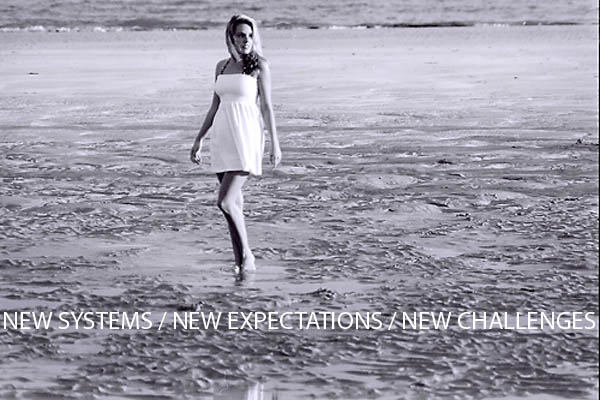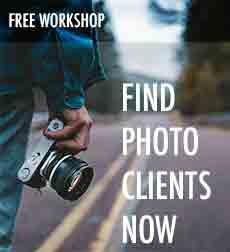This has been a heck of a wild week for me.
I am finishing up my second book for Amherst Media, “Lighting Essentials II: Lighting for Texture, Control and Dimension” and it is taking a bit longer than I expected. The trip to New York was not as productive writing wise cause we simply had a blast going all over the state and putting a couple of thousand miles on the rental. I saw places I had never seen before and I met a bunch of great people.
But I got no writing done at all.
So I am one week late on the book. Not a tragedy, but I am not happy about it. I like to make deadlines, and rarely do I miss one. I hope I am not making excuses, here, simply telling you all that there are a lot of stuff going on.
And that brings me to some discussions I had last week, as well as a great post by my friend, Jan at www.allklier.com/blog. They were so similar as to be kinda kismet – whatever that is.
Here is his post: “Turning Points”
“Well, as the book points out, not only is the world of retail shifting, but with it the world of advertising, the very backbone of commercial photography. The golden age of advertising as a means of selling your stuff to the masses is over as the book predicts. It’s no longer about mega brands pursuing mass marketing with iconic and memorable ads. The previous wave of retail was marketing driven, having to create compelling reasons for consumers to shop their specific brands. However, with the oversaturation of the market it became less and less effective. A mind boggling number is that in the US there are 44 sqft of retail space per capita, a value an entire order of magnitude higher than any other country.”
I think that what has changed is that the systems are breaking, and many are broken. With no idea on how to repair them.
There is talk of market confusion and that is part of it, but it’s not only market confusion, it is system confusion. I had a link this past week on twitter. One is more likely to survive a plane crash than click on a banner ad. Facebook and YouTube are both bigger search tools than Google. An ebook author makes millions selling essentially a PDF while publishers try to figure out the distribution jungle for paper books.
I think it is a systems failure, and people don’t like system failures. The system gives us a pattern, a path of safety, and a proven method of growth.
Now the systems everywhere have been shown to be folly, or worse. The paths are not there, the guarantees of “do A get B” are gone. History. Not coming back.
What is causing this confusion, this failure of systems? It could be a lot of things, a ‘perfect storm’ sort of thing of recession, changes in work force, a new stagnation becoming the norm. There are a lot of reasons, and some excuses, and of course, the scary feeling of uncertainty.
But the one that gets me is the self-sabotage of insisting on the systems that failed to somehow ‘get better’. The hanging on to old, broken ways of doing things will only dig a deeper hole of failure.
“We’ve always done it this way.”
“It’s the way everybody else does it.”
“If we change our formula, it will be the end of us.”
“But no one has ever succeeded doing it any other way.”
“I don’t know how.”
“I don’t have enough money to quit and do what I want.”
I have a response to that stuff when I hear it.
Bullshit.
And don’t forget the people around us who constantly tell us that it is fkd out there and it is all doom, with a happy dash of gloom.
The MSM loves to report disaster, even seemingly pulling for more failures so there is more to whine about. Success is rarely championed, as it somehow shows us how we have failed.
I know it is too easy to blame the current culture, especially pop culture, but nearly to a person every one I have worked with and who is successful has no idea who won American Idol, who the hell ‘Snookie’ is, or is able to name any Lady Gagme tune.
They are busy working. They are busy getting things done. Shooting, designing, writing, selling, shooting, shooting…. They are NOT ready to throw in the towel, they don’t even have a towel.
I met a guy this past weekend, who has turned his life around with video instructional programs. Sells them on the internet, and sells enough to live well, play golf and put money away. The niche is incredibly small, and I am not going to tell you what it is, as he asked me not to. But it isn’t rocket science, he is selling a service of education for a narrow niche that wants it.
Damn near EVERYONE he knew told him his idea was stupid, that no one had ever succeeded selling DVD’s online. It was a fools folly and he would be bankrupt in a few months.
He had to make a decision to do or do not.
He fired his friends that didn’t support him (metaphorically speaking – he simply didn’t hang with them anymore) and found people who were as excited about his ‘lame brained’ idea as he was.
Revenues for his garage business last year… 1.1M. Growth is to be 1.5M this year. In a bad economy. In a business no one had ever been successful in according to those around him – a stupid idea.
I am a photographer, and I am very familiar with people telling me how stupid it is as a business. How the career is a huge fail, and how I should have a real job, one with benefits. (I got an opportunity to photograph Ali twice… benefits? Yeah, that’s a benefit.)
Photography is one of those strange little professions that is so dependent on other strange little professions like advertising, design and publication. And many of them are still depending on old models, old systems and old expectations
Lots of theory that changes nearly every year, but in truth, ad agencies don’t have a fkn clue, or they would never lose a client. Think about it. If an ad agency did have the answers, no product would fail, no service would go under. The advertising agency would have it covered.
However, bad agency campaigns are legend. Diet Pepsi, Chevrolet “Nova” rollout in Mexico*, Burger King – terrible campaigns that left their client up a creek after spending millions. They really don’t have a collective clue. They just think they do.
At $350 per billable hour.
I am not going to seek out those who are still playing in broken systems to help me with my career. I am not going to listen to those how couldn’t make it tell me I can’t as well.
Things have changed and the changin’ ain’t over
Photographers will need to adapt to a wildly changing landscape that no one really knows anything about. They will have to manage their visual inventory in ways not imagined, and they will have to create multiple channels of income that are not dependent on a single channel or source.
The day of the ‘ad shooter’ may be drawing to a close. Or it may be heading into an incredible new world of opportunities for making images and working with other creatives.
There is a lot of mist in the doorway of what will follow.
You can choose to see it as a tragic fail, full of pain and suffering.
You can choose to see it as an opportunity to do something new, to try out things that you haven’t even thought about, to find new ways to make and use imagery.
Either way you choose, you will be right for you.
Choose wisely.
— — —
Did you now that Kirk Tuck and I are doing a workshop in San Diego at the end of August – in San Diego. We will only have ten students, and it is for three days. Did I mention it was in San Diego? Simply beautiful city and incredible weather for shooting. Kirk’s blog is here.
Workshop info can be found at Learn to Light, and you can follow me at Twitter or simply find out more about me.
* Apparently that is not exactly what happened. Oh well, another LIE told to me as fact in a state run skool. Sigh…. (see comments for more info from Ranger 9)






Ah, yes, that infamous “Chevrolet ‘Nova’ rollout in Mexico”: such a great case in point. Too bad it didn’t happen.
http://www.snopes.com/business/misxlate/nova.asp
Edited post to note.
It was taught as gospel in the state run skool I attended. Glad I didn’t borrow money to get what I got. Heh.
Had a long chat w/ my wife about this yesterday on the walk to Starbucks.
There are a lot of changes both at the macro level and within specific industries. Some are still hoping that this will be recession where things will have to work through and then things will be back to normal. But most experts now talk about an economic reinvention, meaning that the core structure of our economy will be different at the other end of this Great Recession.
The change in retail is one part of that. The fact that we’re closer than ever to everyone having access to factual information, and no business can win by bs-int their way through to success anymore, as a result of the Internet. The fact that social media and the Internet has empowered the consumer more than ever has turned the table in many ways. That’s good for the consumer. It’s bad on those who counted on it not being that way.
I think if I see one thing happening: The winners are those that remain flexible, that can reinvent themselves several times throughout their lifetime. There’s no longer life-time employment, any loyalty in the employer-employee relationship, and many industries that used to employ many folks will have disappeared or changed significant in one’s lifetime. There’s no pension and no government financial safety net. And no one really dreams of retiring anymore – we don’t know how to do nothing. So everyone will have second and third careers until we literally fall over on the last day. It’s everyone and his friends for themselves. Kind a like in the old Wild West. The ones that embrace that will build rail roads and live happy and fulfilling lives. The ones that rather follow a playbook someone else writes will be in for a rough ride.
One change I also see coming is that I don’t think the mega corporation with thousands of employees will be here to stay. Maybe the Wal-Mart greeters and other very tactical employees. But most knowledge workers will be self-employed contractors working in a networked world of wealth creation.
It’s an exciting time….
Sorry, my original comment sounded more snide than I had intended. Still, it does confirm your basic thesis: You don’t necessarily want to believe everything “conventional wisdom” tells you!
All I can say is I am working hard to find the work that is there and saddle up that horse. It will get better. It always does. This is just the steppest recession since the Great Depression. Things take time and this will take more time than ever in my life. But it will get better!
Coinciding with the book and the Maisel post maybe you could do a quick post about how to copyright your images, if you need a location release , and maybe some other legal hoops that go with publishing a book or getting your images used for a magazine.
I regularly say, “You can’t lead of you are following.” and “If you want to be a huge success, look at what everyone else is doing, turn around 180 degrees from them, and run like hell!”
Change has been a constant for thousands of years, if things weren’t changing we’d still be in caves chasing our next meal. In the early 2000s there were many academic articles written about a cute little computer company that made nice computers that would never make it in the big time, Also this same company had the foolish idea of selling single songs on the internet. Apple has become a world leader in so many fields and imagine if they had listened to the doomsayers. Find your point of difference and work on it.
A book worth reading about systems and how they work is Peter Senges The fifth discipline. One of the examples he gives is “todays problems are often a result of yesterdays solutions” Digital photography promised us instant feedback, cheaper shooting costs, easier to upload images etc, All those things that would make a photographers life easier. Yet this same solution has created so many of todays problems, cheap photos being instantly uploaded for all to use.
Having too much spare time on my hands I have looked at a lot of photographers websites and I would have to say that a lot of “professionals” are doing everything possible to drive away potential customers. Slow loading sites, boring copy, hard to navigate sites, poor photos and no real sense of what makes this photographer any different from the rest. If they put as much effort into marketing their business as they do into proclaiming doom and gloom they would be far more successful. If professionals can’t adapt and grow then maybe the best thing for them is to get out of the business and leave it for those that can.